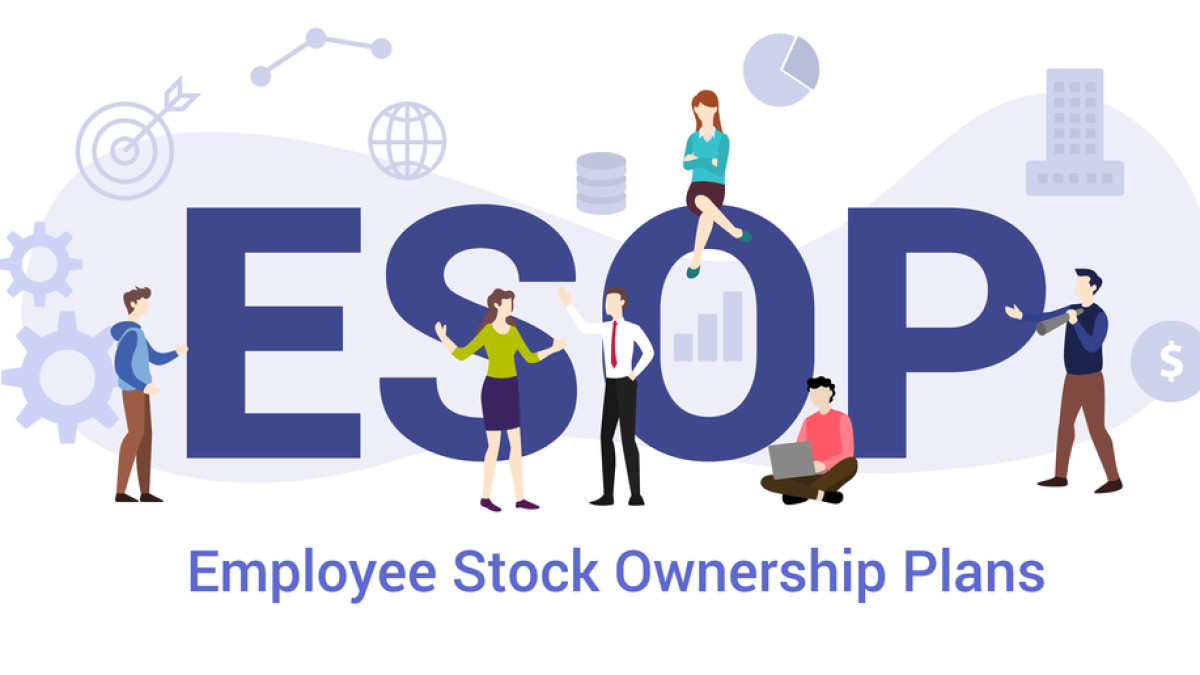In today’s competitive business landscape, attracting and retaining top talent has become a strategic priority for organizations. As a result, companies are constantly seeking innovative ways to motivate and engage their employees. One such method that has gained significant popularity is the Employee Stock Option Plan (ESOP). An ESOP is a powerful tool that not only rewards employees but also aligns their interests with the company’s success. In this article, we will delve into the concept of ESOPs, their benefits, implementation process, and potential considerations.
Understanding ESOPs:
An Employee Stock Option Plan (ESOP) is a compensation scheme that grants employees the option to purchase company shares at a predetermined price within a specified time frame. These options are typically tied to the company’s performance and are aimed at fostering a sense of ownership and accountability among employees. ESOPs are commonly used by startups, established firms, and even publicly traded companies to incentivize employees and foster a culture of shared success.
Benefits of ESOPs:
Implementing an ESOP can yield several benefits for both employees and the company as a whole:
-
Employee Alignment: ESOPs align employees’ interests with the company’s performance, fostering a sense of ownership and commitment. When employees hold a stake in the organization’s success, they are more likely to work towards its growth and profitability.
- Retention and Recruitment: ESOPs serve as a powerful tool for attracting top talent and retaining skilled employees. The prospect of owning a portion of the company can be a compelling incentive that differentiates the company from its competitors.
- Motivation and Engagement: ESOPs provide employees with a tangible stake in the company’s future. This can significantly boost their motivation and engagement levels, leading to increased productivity and innovation.
- Long-Term Focus: Since ESOPs often come with vesting periods (the time an employee must wait before exercising their options), they encourage employees to take a long-term perspective on the company’s growth and success.
- Tax Advantages: ESOPs can offer tax advantages to both the company and employees, depending on the jurisdiction and specific plan structure. These advantages can vary and should be explored with financial and legal experts.
Implementing an ESOP:
Creating and implementing a successful ESOP involves several key steps:
-
Plan Design: Companies need to decide on the structure of the ESOP, including the number of options to be granted, vesting periods, exercise price, and eligibility criteria.
- Valuation: Determining the current value of company shares is crucial for setting the exercise price of the options. Professional valuation services are often employed for this purpose.
- Communication: Transparent and clear communication about the ESOP is essential. Employees need to understand the potential benefits, risks, and how the plan aligns with the company’s goals.
- Legal and Regulatory Compliance: ESOPs are subject to legal and regulatory requirements. Companies must ensure that the plan complies with relevant laws and regulations.
-
Administration: Proper administration of the ESOP, including tracking vesting, exercise dates, and providing necessary documentation, is vital to its success.
Considerations and Challenges:
While ESOPs offer numerous advantages, there are also considerations and challenges to keep in mind:
-
Dilution: As employees exercise their options, the ownership structure of the company can change, potentially leading to dilution of existing shareholders’ stakes.
- Volatility: The value of company shares can be volatile, impacting the perceived value of the ESOP for employees.
- Exit Strategy: Companies must plan for scenarios where employees leave before fully vesting their options or the company undergoes a change in ownership.
- Communication: Effective communication is key to ensuring employees understand the plan’s nuances, benefits, and risks. Lack of clarity can lead to confusion and dissatisfaction.
-
Legal and Tax Complexities: ESOPs can involve complex legal and tax considerations that require expert guidance to navigate.




 Which Country Officially Uses Two Differ...
Which Country Officially Uses Two Differ...
 Historic Glory! Jammu & Kashmir Win ...
Historic Glory! Jammu & Kashmir Win ...
 Three Major Inland Waterways Projects Op...
Three Major Inland Waterways Projects Op...








